There are about one hundred and fifty four movements in traditional Chen Tai Chi F
orm one and Form two. All movements have their individual combat meanings. In relation to Tai Chi kicks, people may easily see a kick in some of Tai Chi movements such as Left Heel kick or Right Heel Kick, however some of Tai Chi movements do not indicate a kick movement directly. Instead, they have Tai Chi hidden kicks. These kicks can be utilised effectively in fighting scenarios as these kick movements are prompt and invisible. In this article, I would like to explore some of Tai Chi hidden kicks and share them with all Tai Chi lovers.Buddha’s Warrior Attendant Pound Mortar
(Jin Gang Dao Zhui)
Buddha’s Warrior Attendant Pound Mortar is a typical Tai Chi movement. It has multiple combat meanings. The above photo indicates its hidden kick with left hand blocking upward, right hand thrusting and right foot kicking forward.
Target Area: shin
Application:
- Block one’s right punch
-
Use right hand to thrust one’s throat or block his vision
-
Kick one’s shin using right foot
The White Crane Spreads Its Wrings
(Bai He Liang Chi)
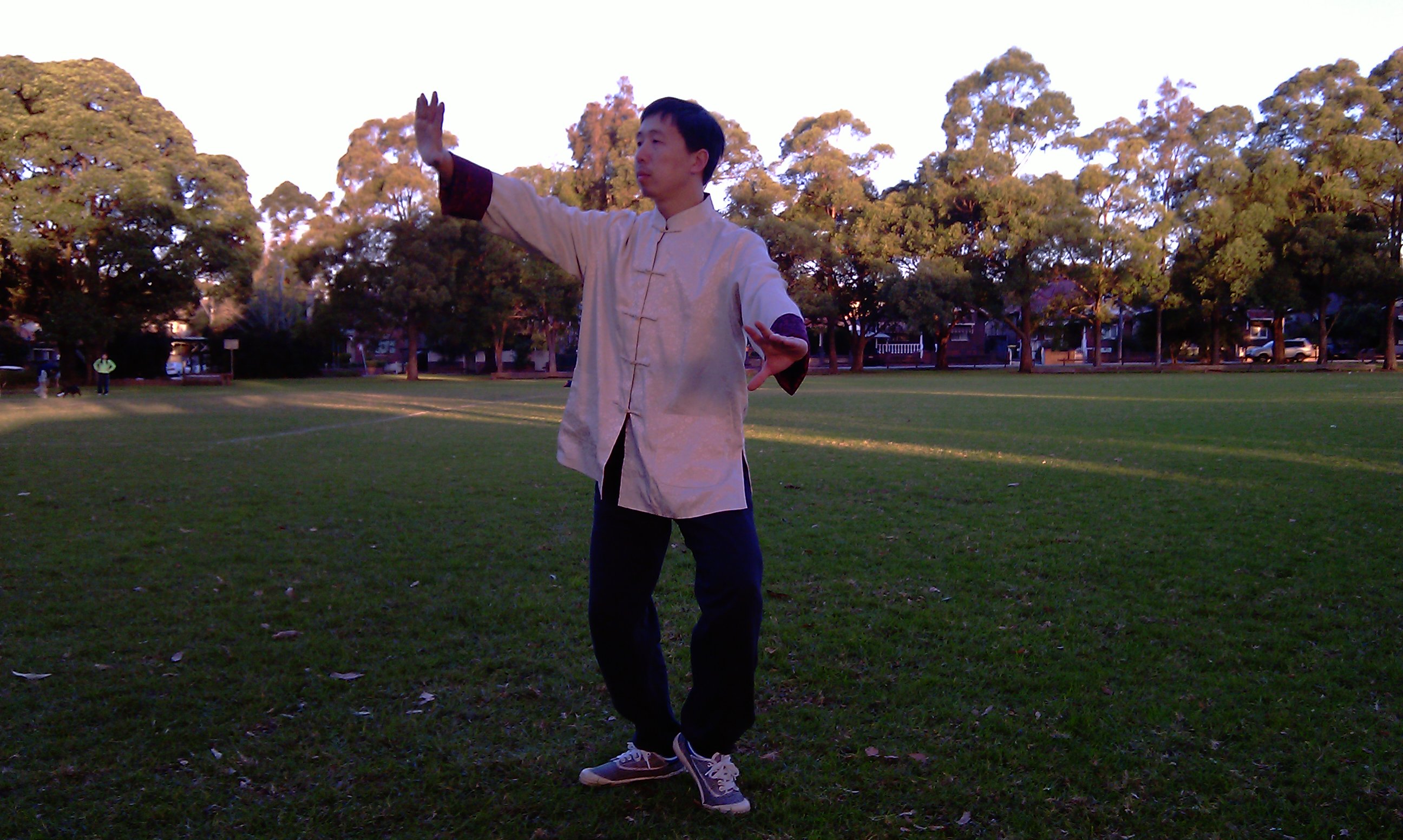
The White Crane Spreads Its Wrings is one of famous Tai Chi movements. Exactly as it is named, it does look like a write crane spreading its wings, which means two hands separate an opponent’s arms to the sides and kick his lower part of body with the left foot.
Target Area:
groin and shin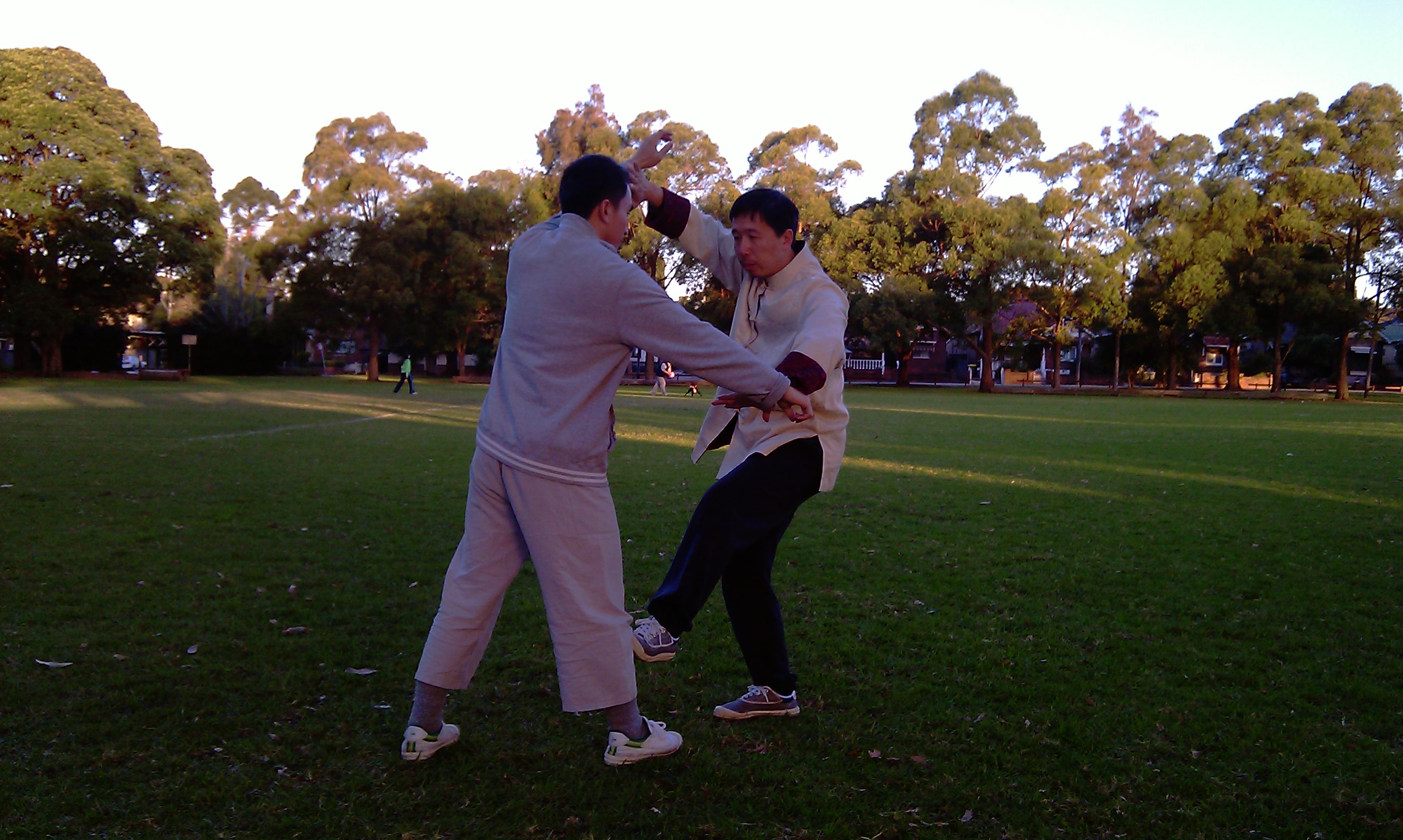
Application 1:
- Separate one’s arms
- Kick one’s shin using left foot
Application 2:
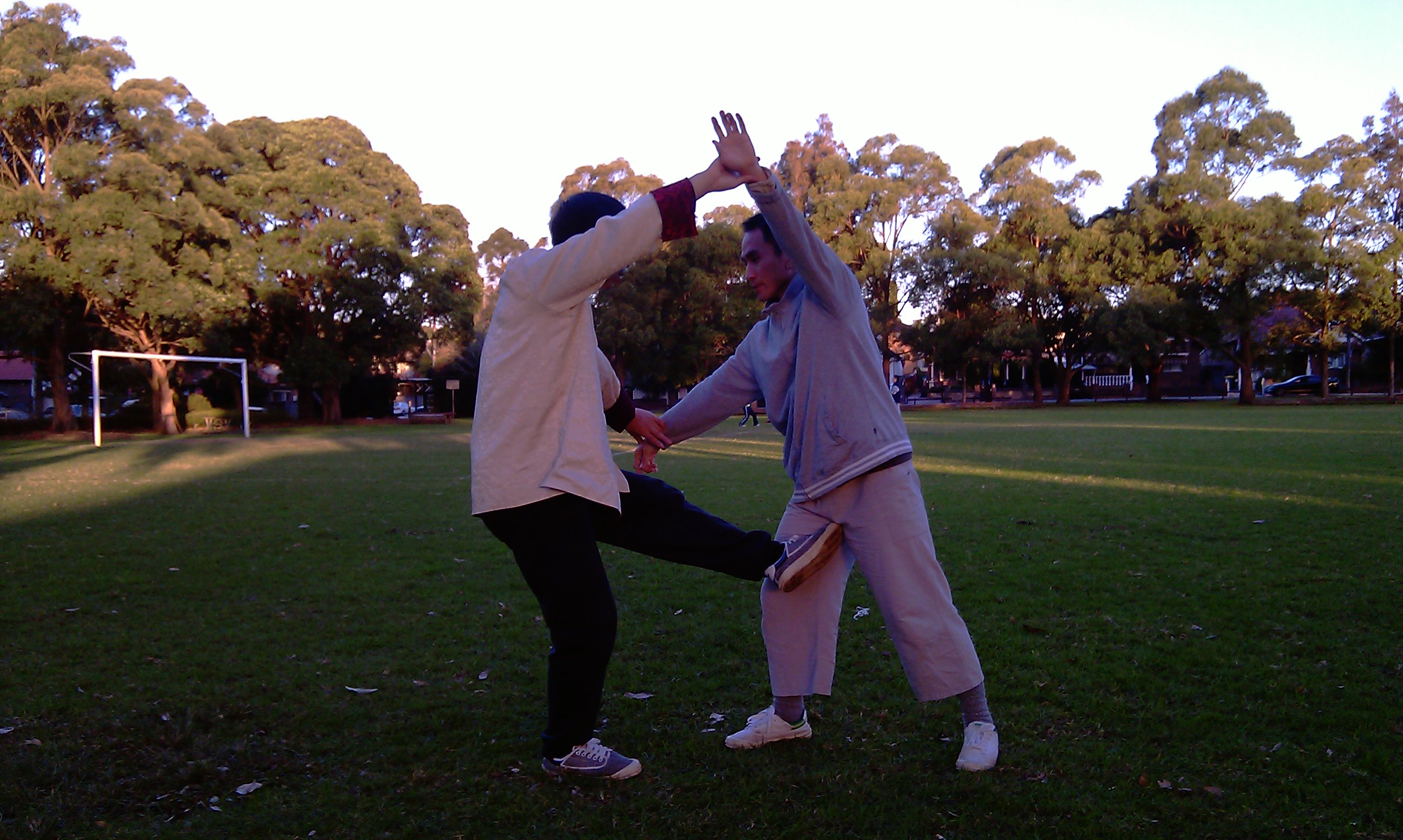
- Separate one’s arms
- Kick one’s groin using left foot
High Pat On Horse
(Gao Tan Ma)
In this movement, one rides a horse with left hand grabbing a checkrein and right hand patting the horse’s head. It is often used as one of quick wrestling techniques (see Application 1). Also the left foot can be utilised as a stamp kick (see Application 2).
Target Area
: back of knee, shin and footApplication 1:
- Control one’s left hand and upper arm
- Use left leg to hook his front leg (back knee area)
Application 2:
- Use right hand to block one’s vision
- Use left hand to control his upper arm
- Stamp left foot on his right foot
Step Forward with Seven Stars
(Shang Bu Qi Xing)
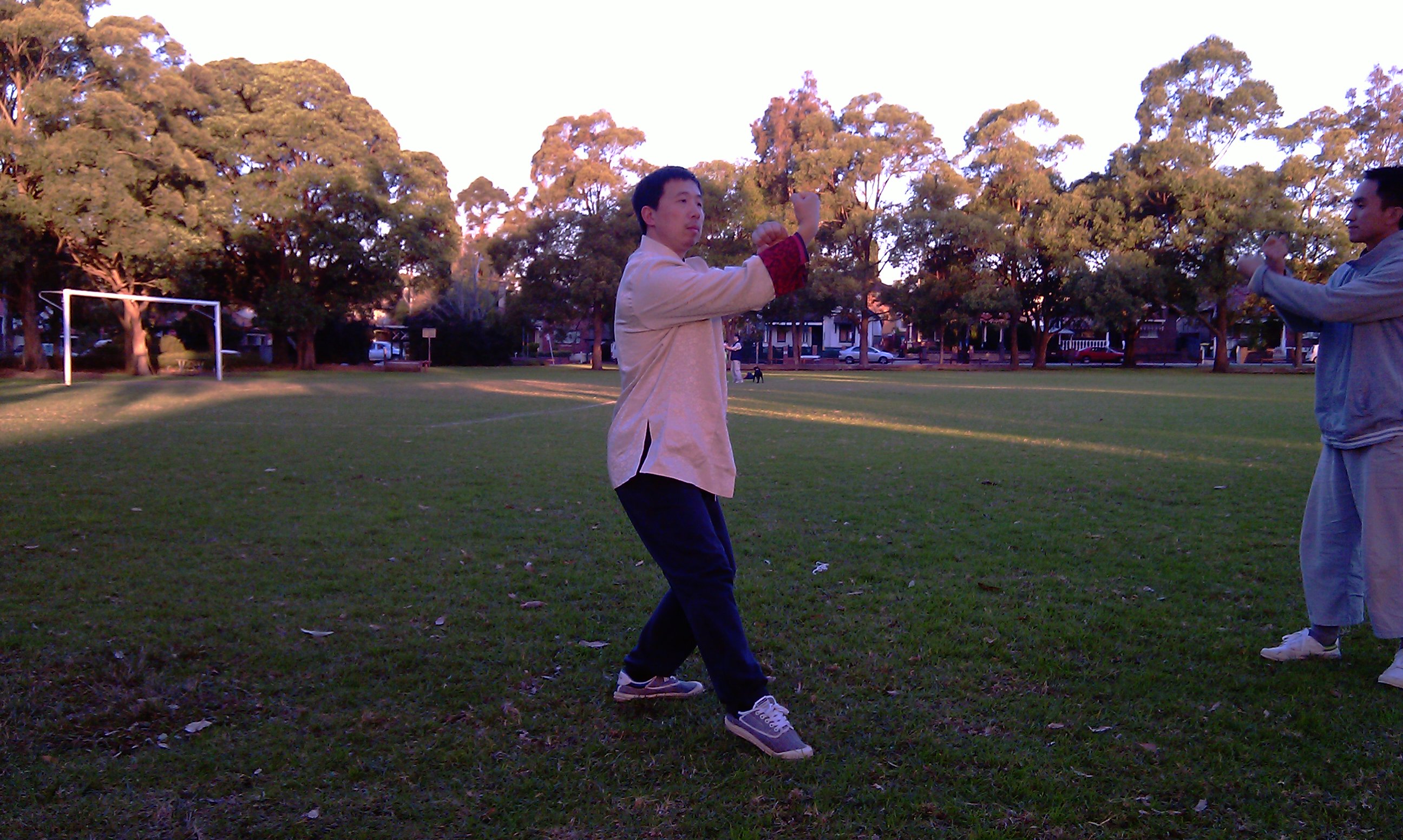
In a side review, the head, hand, elbow, shoulder, hip, knee and foot comprise of a layout of seven stars (Duhhe, Merak, Pecda, Megrez, Alioth, Mizar and Alkaid) in the sky, so it was named Step Forward with Seven Stars. The front leg is an empty leg which can be utilised as a kick toward an opponent’s shin or groin.
Target Area: shin and groin
Application:
- Control one’s right arm using left hand
- Right punch upward
- Kick his shin using right foot
The Dragon on the Ground
(Que Di Long)
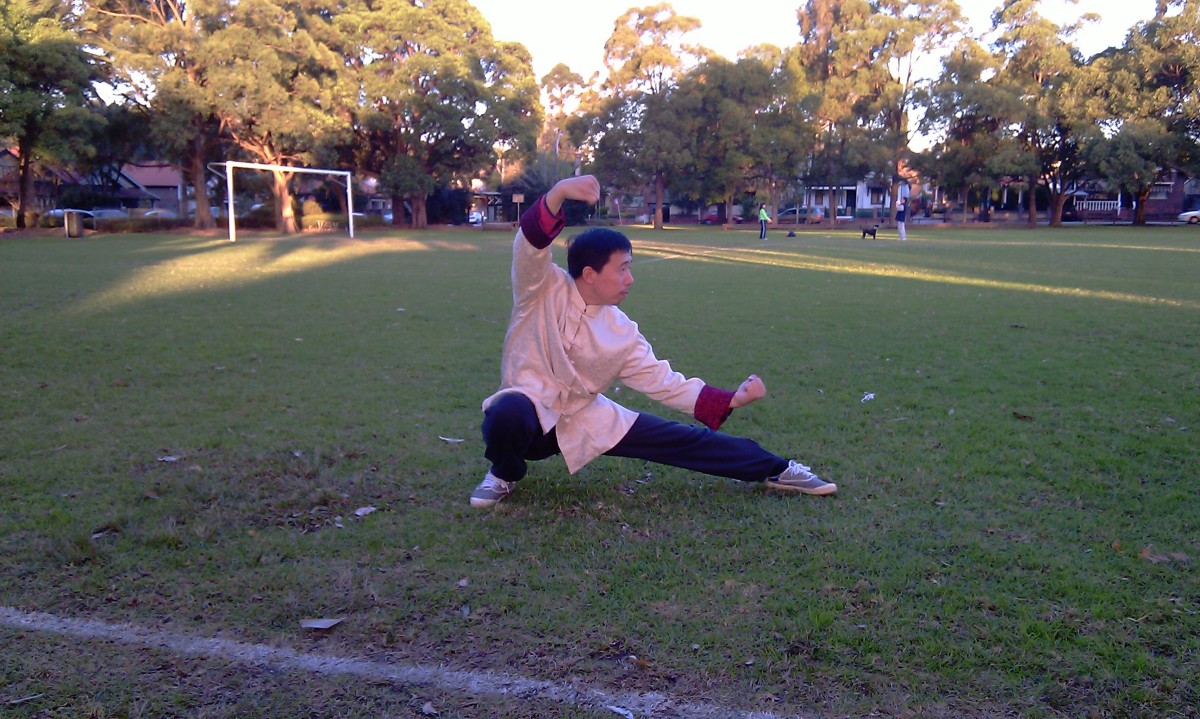
According to its name, it must be a fighting technique at a ground level. Indeed, it includes a back sweeping kick that we
step toward the target, pivot on this foot, and sweep another foot backward toward an opponent’s lower leg or ankle with right heel.Target Area: lower leg/ankle
Application:
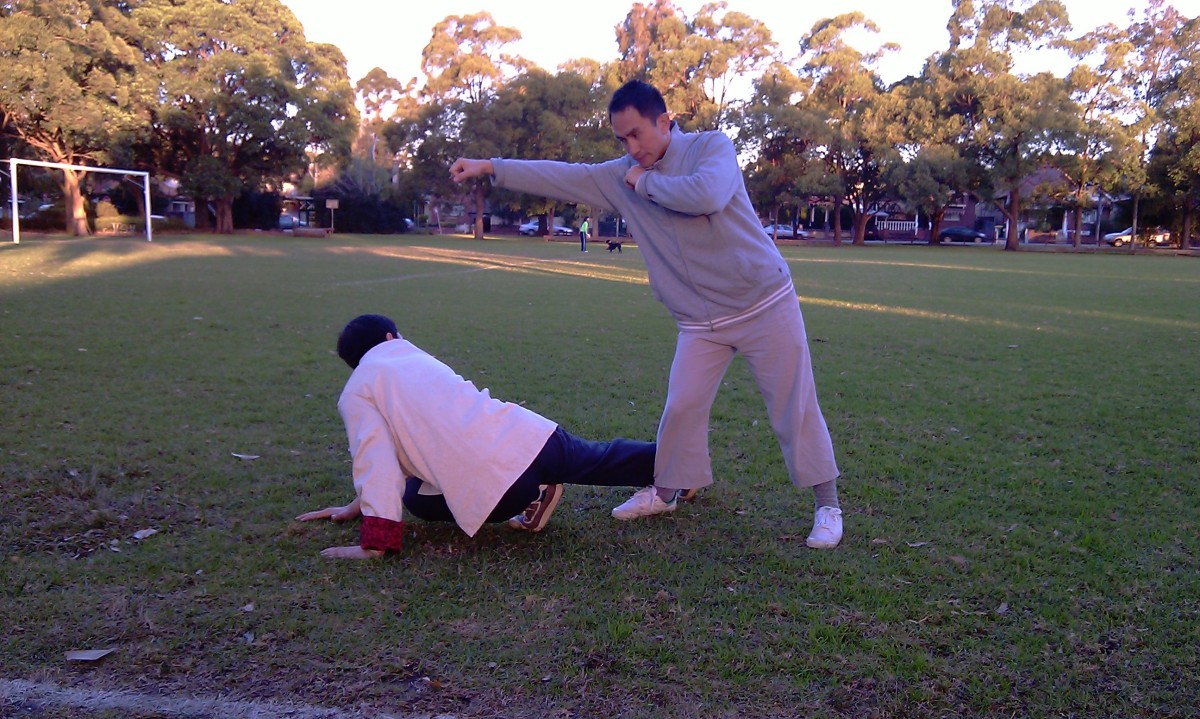
- Lower the body to avoid one’s punch or a high kick
- Pivot on the left foot
- Turn around promptly to sweep his lower leg/ankle using right leg
Fist Under Elbow
(Zhou Di Chui)
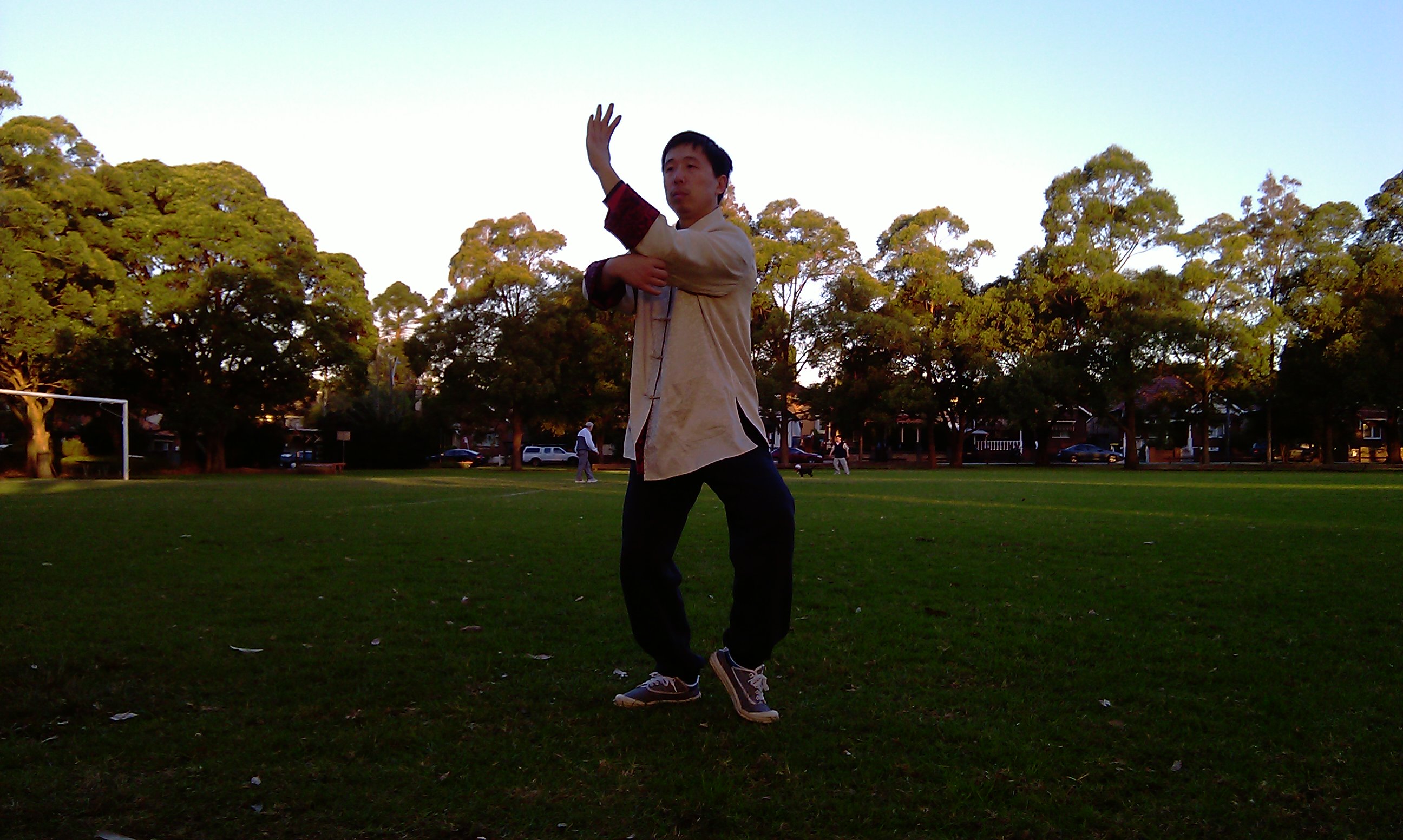
A right fist under the left elbow usually means using left hand blocks a strike and punches an opponent with right fist. Actually there is a hidden footwork included in this movement which is used as a quick wrestling technique.
Target Area: lower leg
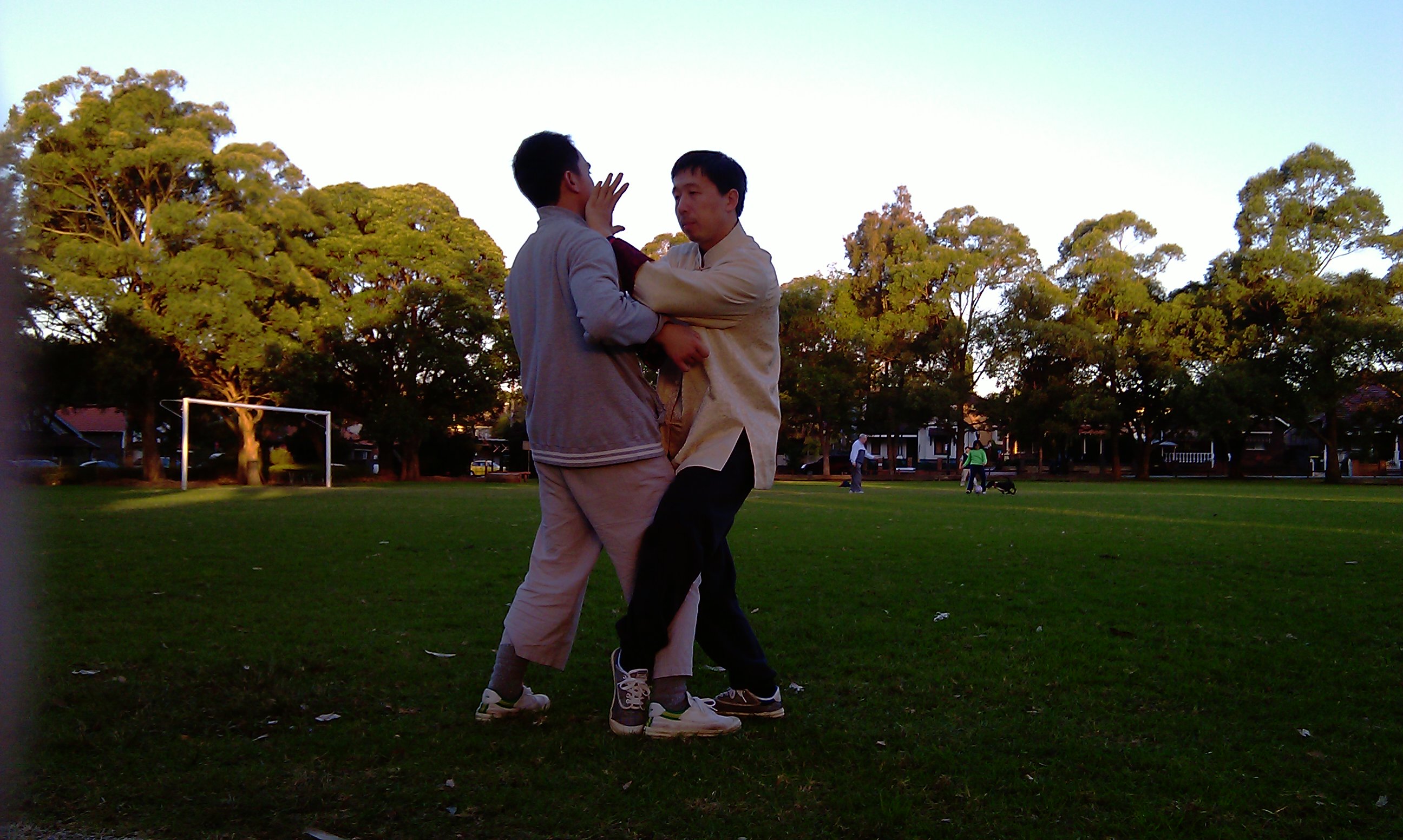
Application:
- Control one’s right arm
- Use right hand to push his chin
- Use left leg to hook his back of right knee
Tai Chi forms are a database of fighting techniques. In The Treatise On Tai Chi Chuan, Wang Zongyue (One of Tai Chi masters, 18th century) summarised many Tai Chi fighting principles. The above are just a few examples which I have found they are quite effective in combat situations.
However, there are a number of hidden Tai Chi kicks in the traditional Tai Chi forms which need to be discovered. When practicing Tai Chi, we need to not only pursuit its maximal health benefits but also think about how to apply it in combat.
Based on my teaching experience, I have found once a student understands a movement’s combat meanings, they could perform it much better than those who does not know in term of strike points, Jin (inner power) release and so on. Also they even can remember this movement easily and speed up their learning process.
Xiaotong Huang (Todd)
Tai Chi Practitioner, Sydney
Email: hxtyagf@gmail.com
Mobile: 0438 800 851